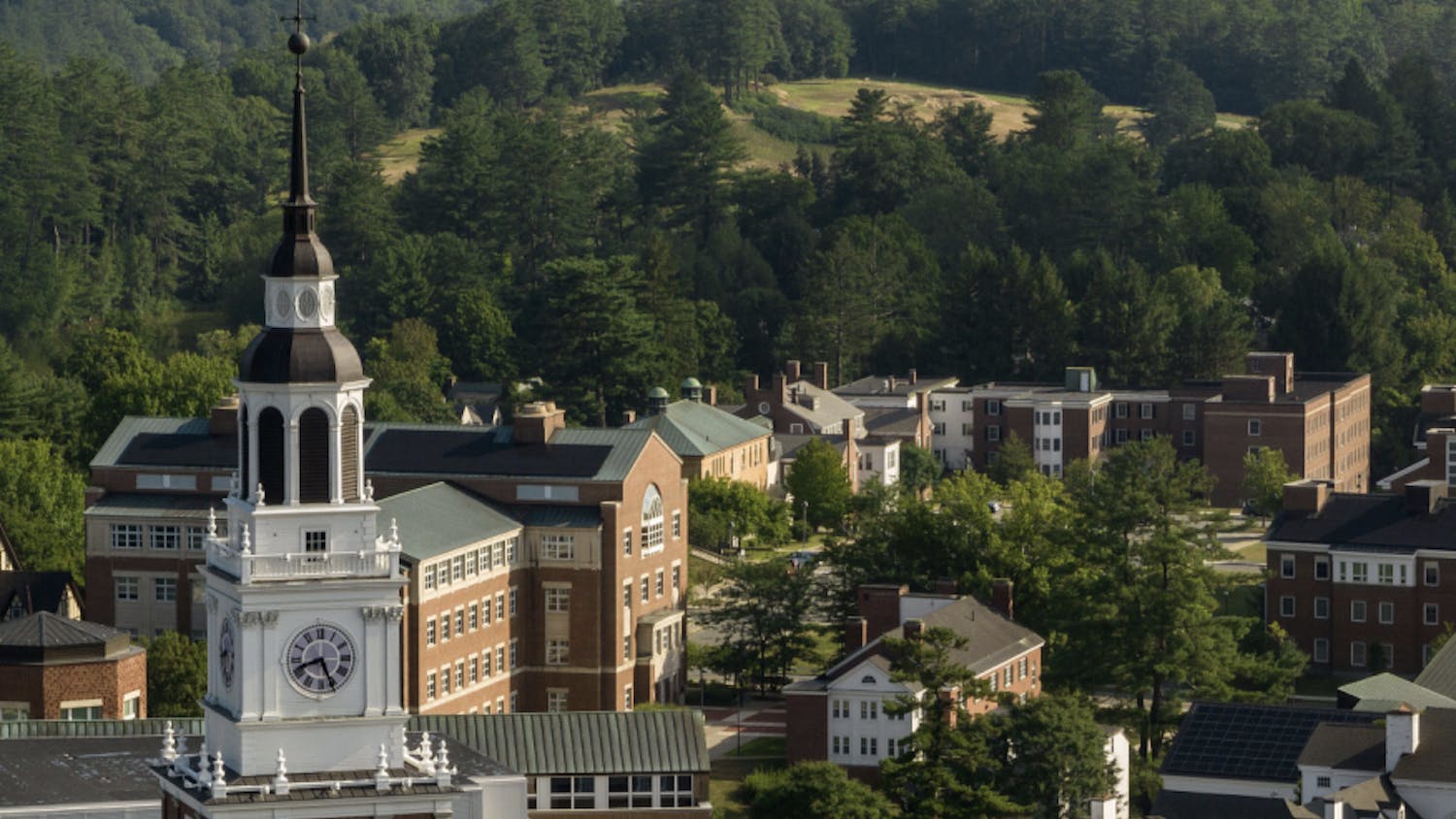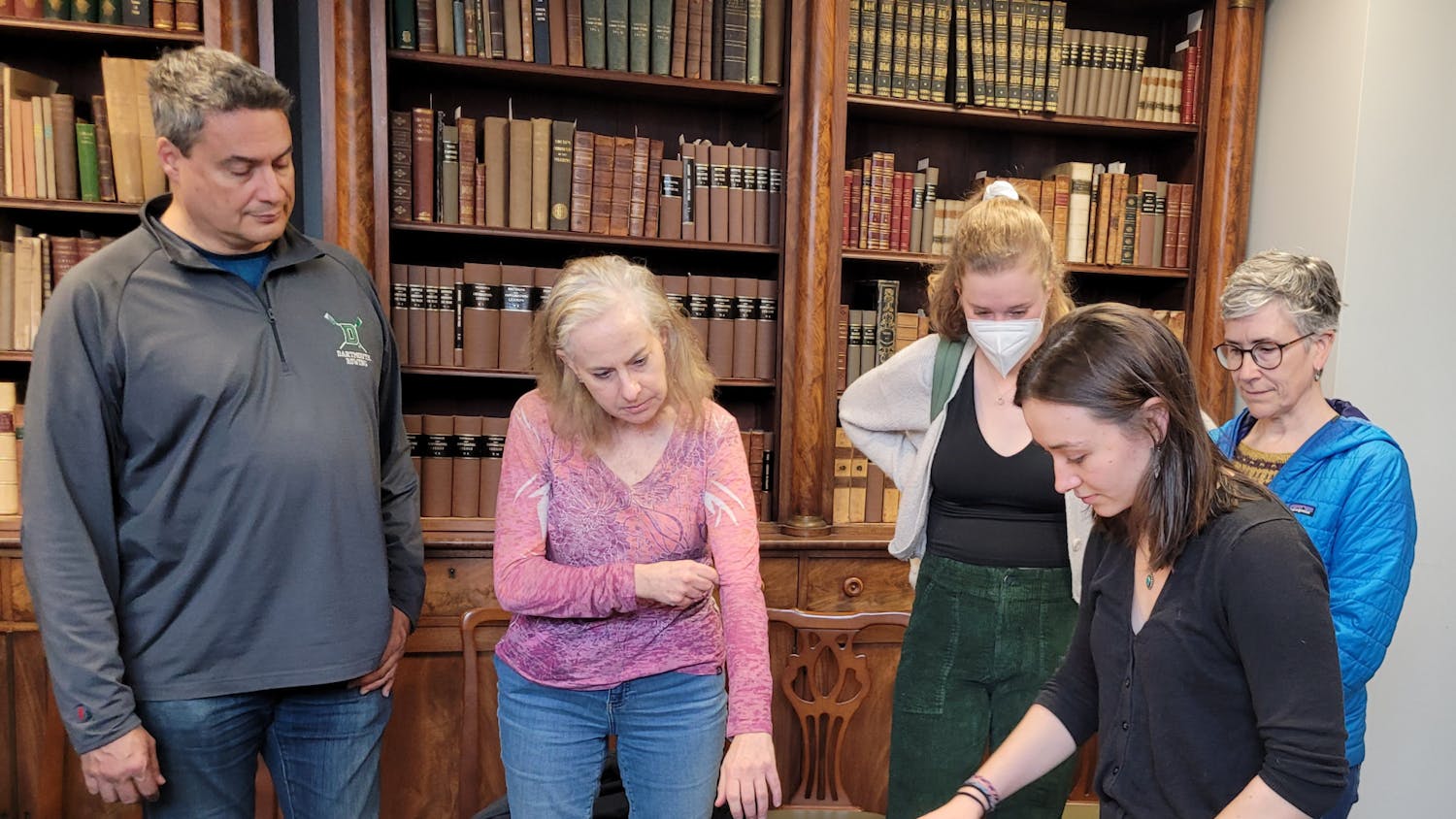In his lecture yesterday evening at the Rockefeller Center, journalist Michael Cohen connected the political activity of Nelson A. Rockefeller ‘30 to today’s polarized presidential election. The Boston Globe contributor discussed his new book, “American Maelstrom: The 1968 Election and the Politics of Division,” which concerns the career and legacy of Rockefeller, who served as the Vice President under former Presdient Gerald Ford.
Cohen, a columnist for the Boston Globe and World Politics Review, also wrote “Live from the Campaign Trail: The Greatest Presidential Campaign Speeches of the 20th Century and How They Shaped Modern America.” His new book examines the work of Rockefeller, who is considered one of the last great Republican moderates.
“Nelson Rockefeller would rather be Nelson Rockefeller than be the president of the United States,” Cohen said, quoting his new book, as he began to speak to about 50 people in the Rockefeller Center.
He noted that Rockefeller’s sense of self was apparent throughout his career, from his moderate “doer” attitude while governor of New York to his passion at the 1964 Republican convention. At that convention, Rockefeller criticized the party for abandoning its principles and was booed off the stage as a result.
In 1968, Rockefeller’s policies as the “standard bearer for the moderate wing of the Republican Party” began to play a major role in the party’s ideological shift, according to Cohen. Stuck between Rockefeller’s moderation and Ronald Reagan’s unique brand of conservatism, Nixon crafted a new conservative Republican platform that allowed for him, despite his unpopularity, to capture the primary and subsequent election. Rockefeller’s moderate stance on certain issues became a figment of the Republican party’s past, increasing political polarization that still haunts the American election cycle today, Cohen said.
“The great tragedy of Rockefeller is not just the moderate wing disappeared, it is that the conservative wing took over to the point when the Republican party no longer had two ideologically opposed wings,” Cohen said.
From this point in history, Cohen argued, the American political dialogue changed for the worse. Effects of this are seen in both the Republican loss by 5 million votes in the 2012 presidential election and in the current presidential race between Hillary Clinton and Donald Trump.
“The failure of Nelson Rockefeller explains our current polarization in this country,” Cohen said. “We have a very polarized electorate, maybe more polarized than any other electorate in American history. Part of the reason for that is that the parties are so homogenous in their ideological dispositions.”
At the end of his talk, Cohen opened the floor to questions, which organizer and Rockefeller Center program officer Joanne Needham said helps create more robust conversation after lectures.
Students and visitors on campus posed questions to Cohen on topics ranging from money in politics to the future of the Republican party. Attendee Gabriel Jenkinson ‘20 said that the lecture made him realize that the lack of moderate candidates is not new, but has been happening gradually over time.
Following the questioning, attendees were invited to a dinner and conversation with Cohen.



